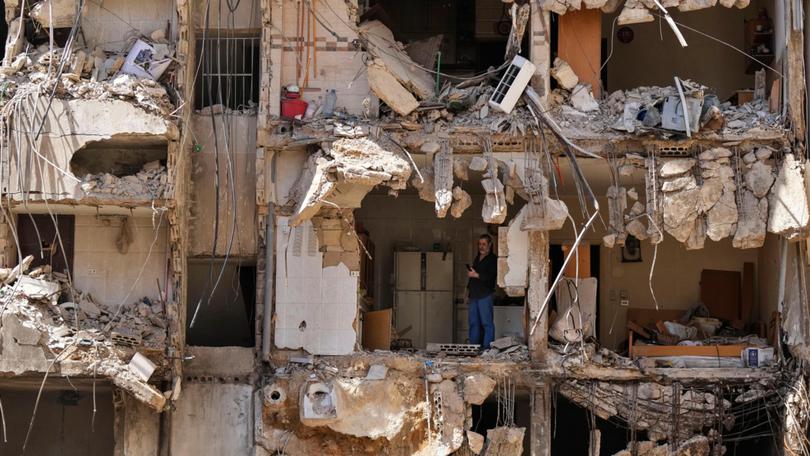Why are Israel and Hezbollah fighting, and what are Israel’s objectives in Lebanon?
Strikes between Hezbollah and Israel have been common for decades, but the exchanges of fire over the past year, and the ongoing escalation, have raised fears of a larger war. So what is Israel’s objective?

Strikes between Hezbollah and Israel have been common for decades, over the border shared by southern Lebanon and Israel, but the exchanges of fire over the past year, and the ongoing escalation, have raised fears of a larger war.
Hezbollah is a Shiite Muslim militant organization backed by Iran and based in Lebanon. In 1985, during the Lebanese civil war, the group published a manifesto that listed the destruction of Israel as a key goal, in response to that country’s occupation of southern Lebanon.
Israel and Hezbollah last went to war in 2006. Israeli strikes on Lebanon on Monday that left hundreds dead and more than 1,000 injured made it the deadliest day of conflict between Israel and Hezbollah since that war.
Sign up to The Nightly's newsletters.
Get the first look at the digital newspaper, curated daily stories and breaking headlines delivered to your inbox.
By continuing you agree to our Terms and Privacy Policy.A day after the Hamas attack on Israel on Oct. 7, Hezbollah, which said it was not involved in the attack from Gaza but expressed support for Hamas, launched a solidarity attack on Israeli targets in Shebaa Farms, a disputed area on the border. Israel and the militant group traded fire. In the 11 months since, both sides have moved their attacks deeper into enemy territory.
Attacks ramped up sharply in the past week.
Israel on Friday killed members of Hezbollah, including a senior commander, in an airstrike on the southern suburbs of Beirut, following a wave of remotely triggered explosions of Hezbollah-carried walkie-talkies and pagers that killed at least 37 people and wounded thousands. Hezbollah blamed Israel for the apparent sabotage attack, and called it an “act of war.”
Hezbollah leader Hasan Nasrallah on Thursday said his group would not stop until Israel ended the war in Gaza.
Former Israeli war cabinet member Benny Gantz has said Israel should shift its focus from Gaza and toward the Lebanese border and Hezbollah. “The time for [action in] the north has come,” Gantz told an audience at the Middle East America Dialogue summit in Washington earlier this month. “I think we are late on this.”
Top Israeli officials have emphasized the importance of the safe return of Israeli residents to their homes in the north. Some 60,000 people from northern Israeli communities have been displaced by the threat of Hezbollah fire since last October. Tens of thousands are also displaced from southern Lebanon.
“I promised that we would change the balance of forces in the north - this is exactly what we are doing,” Israeli Prime Minister Benjamin Netanyahu said in a video statement Monday.
Hezbollah presents a larger, more strategic and better-armed foe than Hamas, and there are concerns about whether Israel has the resources and stamina to wage another full-scale offensive.
A war with Israel would be costly for both Hezbollah and Lebanon, in terms of the likely casualty count and the risk to Hezbollah of losing political influence in Lebanon.
The United States has sought to keep tensions low between Hezbollah and Israel, with some officials touting the absence of a full-blown war between the two as a core achievement of the past 11 months. The Biden administration continues to urge de-escalation to avoid an all-out regional war, but U.S. diplomats hold little sway over Iran and Hezbollah despite its significant leverage over Israel.
© 2024 , The Washington Post
